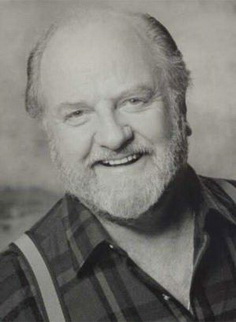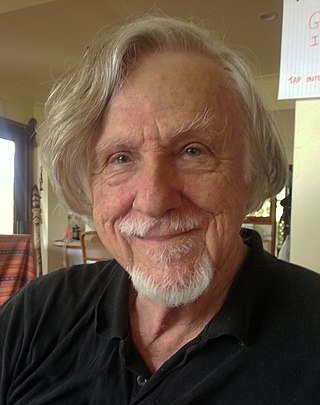Related Research Articles

Norman Frederick Jewison is a Canadian retired film and television director, producer, and founder of the Canadian Film Centre.

The National Film Board of Canada is Canada's public film and digital media producer and distributor. An agency of the Government of Canada, the NFB produces and distributes documentary films, animation, web documentaries, and alternative dramas. In total, the NFB has produced over 13,000 productions since its inception, which have won over 5,000 awards. The NFB reports to the Parliament of Canada through the Minister of Canadian Heritage. It has bilingual production programs and branches in English and French, including multicultural-related documentaries.
Roman Kroitor was a Canadian filmmaker who was known as a pioneer of Cinéma vérité, as the co-founder of IMAX, and as the creator of the Sandde hand-drawn stereoscopic 3D animation system. He was also the original inspiration for The Force. His prodigious output garnered numerous awards, including two BAFTA Awards, three Cannes Film Festival awards, and two Oscar nominations.

Ryan Larkin was a Canadian animator, artist, and sculptor who rose to fame with the psychedelic Oscar-nominated short Walking (1968) and the acclaimed Street Musique (1972). He was the subject of the Oscar-winning film Ryan.

Christopher John Wiggins was an English-born Canadian actor.
Jean Pierre Lefebvre is a Canadian filmmaker. He is widely admired as "the godfather of independent Canadian cinema," particularly among young, independent filmmakers.

Michael Dattilo Rubbo is an Australian documentarian/filmmaker.
Don Owen was a Canadian film director, writer and producer who spent most of his career with the National Film Board of Canada (NFB). His films Nobody Waved Good-bye and The Ernie Game are regarded as two of the most significant English Canadian films of the 1960s.
Colin Archibald Low was a Canadian animation and documentary filmmaker with the National Film Board of Canada (NFB). He was known as a pioneer, one of Canada's most important filmmakers, and was regularly referred to as "the gentleman genius". His numerous honors include five BAFTA awards, eight Cannes Film Festival awards, and six Academy Award nominations.
Boyce Richardson, was a journalist, author and filmmaker.

Greater Madawaska is an incorporated township in Renfrew County in eastern Ontario, Canada, created on January 1, 2001, through the amalgamation of the Township of Bagot and Blythfield; the Township of Brougham; and the Township of Griffith and Matawatchan. As of 2011, it has a population of 2,518.
Tony Ianzelo is a Canadian documentary director and cinematographer.

Joan Helen Finnigan was a Canadian writer and poet. She won a Genie Award for Best Screenplay in 1969. She wrote over 30 books, many of them oral histories of the Ottawa Valley.
The Best Damn Fiddler from Calabogie to Kaladar is a 1968 National Film Board of Canada drama directed by Peter Pearson, produced by John Kemeny and written by Joan Finnigan. The 49-minute drama stars Chris Wiggins and Kate Reid, along with Margot Kidder in her first feature role.
John Kemeny was a Hungarian-Canadian film producer whom the Toronto Star called "the forgotten giant of Canadian film history and...the most successful producer in Canadian history." His production credits include The Apprenticeship of Duddy Kravitz, Atlantic City, and Quest for Fire.

Albert Kish was a Canadian documentarian/filmmaker.
The 27th Canadian Film Awards were held on October 24, 1976 to honour achievements in Canadian film. The ceremony was hosted by Lorne Greene, and was held at the conclusion of the inaugural 1976 Festival of Festivals.
The 26th Canadian Film Awards were held on October 12, 1975 to honour achievements in Canadian film. The ceremony was hosted by radio personality Peter Gzowski.
The 21st Canadian Film Awards were held on October 4, 1969 to honour achievements in Canadian film. The ceremony, attended by 1,200 people, was hosted by broadcaster Fred Davis.
The 25th Canadian Film Awards were announced on October 12, 1973, to honour achievements in Canadian film.
References
- ↑ "Peter Pearson - Northern Stars". Archived from the original on 2010-11-27. Retrieved 2011-01-27.
- ↑ "Peter Pearson - Canadian Film Encyclopedia". Archived from the original on 2012-10-06. Retrieved 2011-01-27.
- ↑ "Order of Canada appointees – December 2023". Governor General of Canada . Retrieved 2023-12-28.